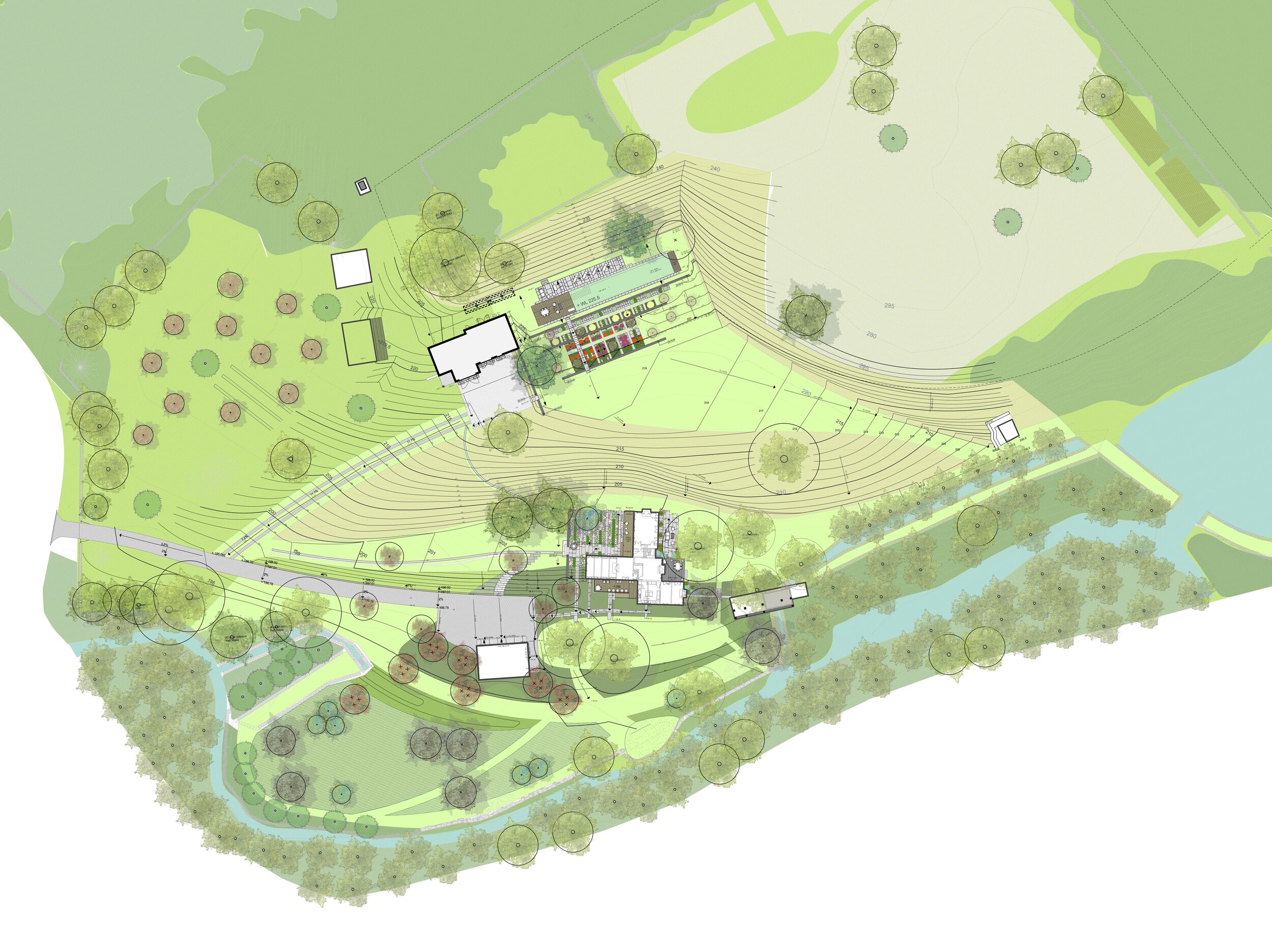Roaring Brook
Roaring Brook
East Haddam, CT
Located in southeastern Connecticut on Roaring Brook, a tributary of the Connecticut River, the project revitalizes a haphazardly arranged 19th-century farmstead, consisting of a hydro-powered sawmill, a farmhouse, several historic outbuildings, and a community cemetery. Roaring Brook’s new site design allows the historic programs to grow in use while endowing it with dignified qualities —a defunct farmstead transforms into a spacious and refined rural garden.
Purchased as a primary residence for a well-known architect and a chef, Roaring Brook’s property needed to serve the interests of its new owners while building off the legacy of its prior uses. The design efforts distilled the remnants of the working hillside into their essential glacial topographic forms with distinct spaces organized by new circulation pathways, unifying and choreographing the site as a series of interconnected cultivated landscapes.
New terraced gardens—including outdoor seating terraces, a new swimming pool, and gardens for cut flowers and kitchen vegetables—are nestled within a larger landscape of orchards, native hillside meadows selected for pollinators, and a restored floodplain meadow. Experientially, the project choreographs the landscape into distinct, human-scaled spaces that frame views and celebrate and highlight the site’s historic buildings and rich layers of use and history.
While at Reed Hilderbrand, Unknown Studio’s Nick Glase served as Project Manager, and Sr. Landscape Architect on the project from Schematic Design through Construction Administration. Throughout this project Nick worked closely with the clients and design team Principals Gary Hilderbrand and Beka Sturges.
Project timeline: 2014-2016
Scope: Residential landscape, concept through construction administration
Size: 42 acres
With: Reed Hilderbrand LLC, Landscape Architecture
Nick Glase, Project Manager & Landscape Architect
Consultants: Michael Horton Associates
Awards: Honor Award in Residential Design, ASLA CT Chapter, 2019







